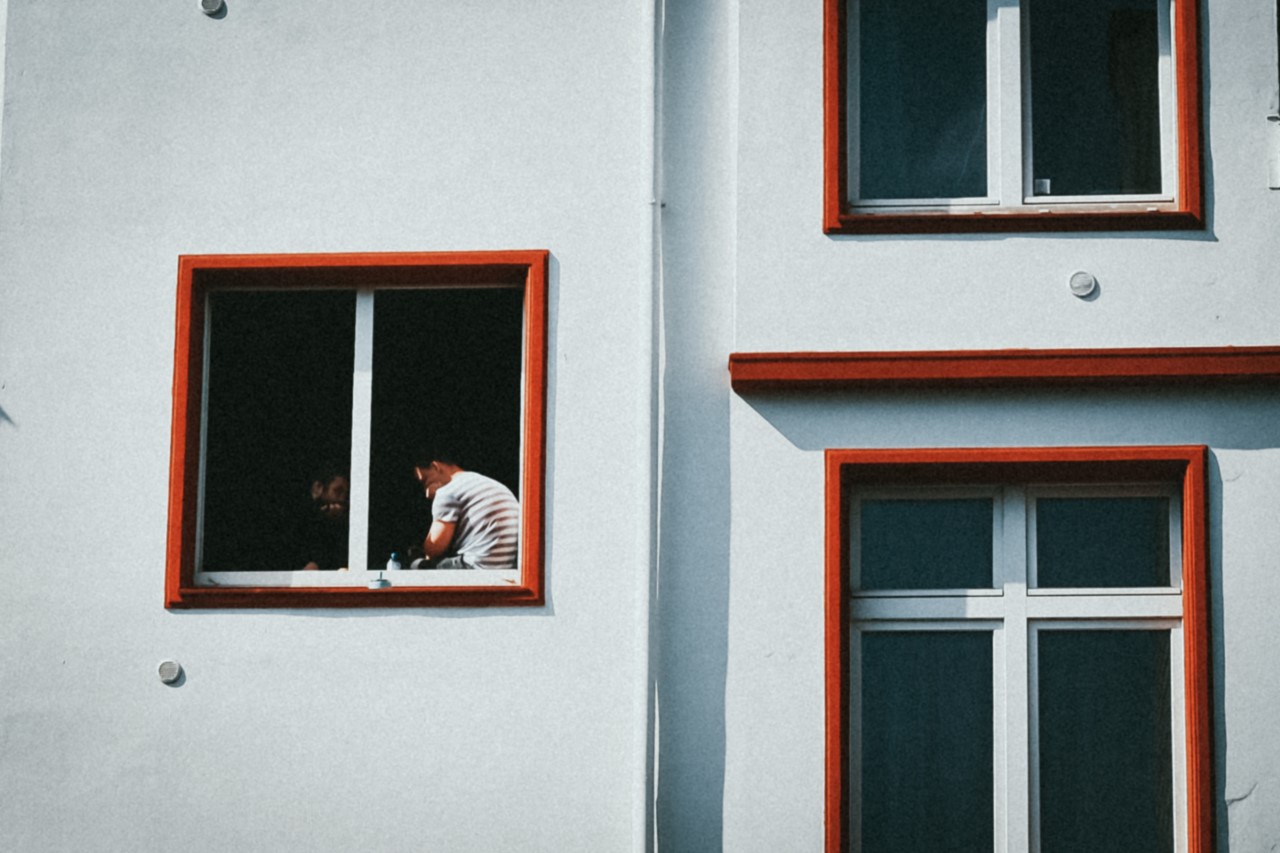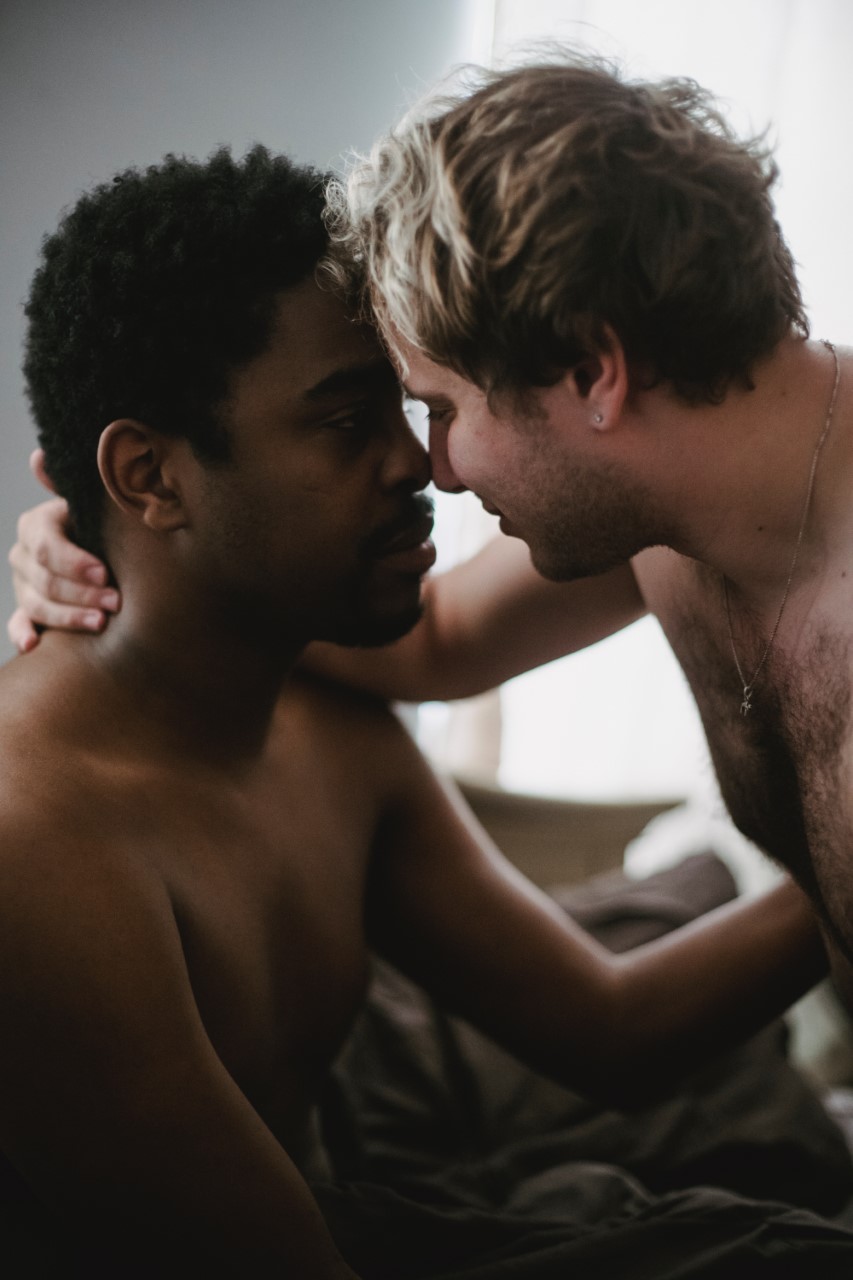Searching for intimacy in a world made newly vulnerable
From solosexuals to sexless couples, Helsa’s new study looks at the pandemic’s effect on LGBTQ+ intimacy

(Words: Steve Lok [pictured below], CMTO at Helsa; pictures: Pexels)
When it comes to intimacy expressed through sex, as queer people we have always had to negotiate the contract between the needs of our intimate selves and the needs of the world we live in.
With the ongoing Covid-19 pandemic’s unprecedented effect making so much of the ordinary and every day more dangerous, LGBTQ+ mental health and wellbeing platform Helsa and drug, alcohol and mental health charity We Are With You have come together to investigate the pandemic’s effect on sex and intimacy. We examine the challenges faced by the LGBTQ+ community, as well as highlight some of the wonderful and creative ways in which we’ve been able to find a new normal, in a world made newly vulnerable.

Our Pandemic Mental Health Study shows us that while most of us are grappling with new challenges, we have also found new ways of “making it work”.
Vulnerability is Hot
Exposure, power, and negotiation are centrepiece notions in sex and intimacy dynamics shaping the complex excitement of vulnerability. The appeal of accessing our vulnerability, then becoming generous with it, is core to the human desire to connect and to see ourselves as accessible human beings. Earned and lived experiences tend to fashion protective walls, which we build up from an early age. We then often spend just as much time as adults pathfinding through those barriers, back to the delicate core of our authenticity.
In Helsa’s study, nearly half of us (44%) say that the framework for our sexual lives have been disrupted during the pandemic. Sometimes those changes are small and manageable, but other times they can be dangerous and lead to volatile new situations we are likely not able to address right now. The hard-fought LGBTQ+ community’s ‘sexual stability’ – under an ever-constant cis-gendered and heterosexual gaze – is under fire.
Ollie is 32, single, and cis-male who lives alone as a student outside of Derby, told our study how he has an on/off long-standing ‘Friend With Benefits’.
“It’s on/off as we’re both incredibly respectful of when we’re in relationships and how those relationship setups may be different. We’ve been sleeping together for about four or five years now, he means the world to me and it’s definitely only made our friendship stronger,” he says.
“[The] most scary thing at the moment, is to be hopeful. There’s a vulnerability with that. In all honesty whatever happens there, more than anything I am looking forward to hugs. I have had two hugs since March. Two. Also kissing. It’s definitely more the intimacy that I miss than sex, I feel.”
Others have found themselves reaching out to strangers for intimacy. “I hooked up three times, so far, about every 60-90 days, in a desperate, needy, emotionally unstable state,” says Skye, Cardiff.

Sex from Scratch
Much more, or much less? The frequency of sex seems to be polarising in LGBTQ+ groups. “Neither of us are sure how to restart our sex life at the moment,” Jessica and Amrita, Glasgow, stated in the survey.
Not knowing how to restart sexual intimacy, or even not wanting to be touched, seem at first glance to be at odds with those who are hooking up more or going to more sex parties – but what is common is that behaviour is shifting to extremes.
Amongst a quarter (23%) of respondents to Helsa’s study have been engaging in more worrisome sexual habits, increasing their frequency of hookups even in light of known regulations and health risks. Perhaps decoupling the desire to ‘party’ from the desire for sex, the survey showed this was encouragingly independent of any increased use of drink or drugs. We are not inoculated against the needs and issues that continue to exist.
“I’ve never really had the confidence to engage in hookups,” says Ollie. “So, if my FWB had met somebody at work anyways and I hadn’t met with the guy I like, I still most likely wouldn’t be having sex. I have not had sex since the very end of February.”
People in partnerships have faced their own challenges. Thirty-four percent of our study respondents noted that there was a marked decrease in their libido or desire for intimacy.
“In the beginning my boyfriend and I had a very healthy sexual relationship,” Jason, Manchester, told the survey. “But my desire for sex has completely stopped. I don’t even want to be touched now. Everything has become awful on all levels.”
With a quietening of distractions, the ‘great pause’ has presented people an opportunity to deal with these issues head on with partners. As the pandemic’s new health threat continues, the community is having to consider how to preserve our relationships as well as our individual sexual health.

Creating Digital Intimacy
Some folks have turned to old faithful resources in these lonelier times, notably porn, casual sexual encounters, and substance usage. But along with the ascendancy of platforms like Zoom to replace in-person work meetings, many are also turning to video chat to replace in-person fun, too.
“I was [worried I was] developing an addiction. This was compounded by the fact that I recently broke up with my long-term partner,” says Jessie, Lancashire, of her increased use of various digital platforms.
In Helsa’s study, twenty-three percent of respondents reported an increase in porn usage in the last few months. And while porn use in and of itself is not necessarily an issue, when used in excess and in combination with substances and seclusion, it can be a red flag. However, in the time of Covid, it might still be considered a safer alternative to more risky activities that involve other people. But what about those who never have sex with others?
‘Solosexuals’ define a segment of the population whom by definition are either mostly or exclusively into having sex alone. Usually this takes the form of different types of masturbation, which has given rise to the “bating” community. This corner of the queer sex subculture may contain key learnings for how to originate, and not just simulate, sex and intimacy without any pandemic risk at all through its use of video chat and distanced play.
For a group with roots in the masturbation-only events that rose to prominence during the HIV/AIDS crisis, the pandemic’s effects have been relatively mild; if anything, their community has only grown.
However, the move of some populations over to digital encounters is surfacing new risks. The anonymous digital playrooms in which people mostly participate on their own often results in a sacrifice of an important shared experience safety net, and as a result we note an increased potential for serious harm.

A Dangerous Interruption in Harm Reduction
Chemsex describes the practice of men having sex with other men and using particular substances, normally GHB, crystal methamphetamine and mephedrone, to enhance the experience. Ben Kaye, at We Are With You, is an LGBTQ+ Lead and has been supporting the community as a drug and alcohol worker, and is one of the group’s chemsex experts, has been looking at how the pandemic impacts the chemsex community.
“Earlier this year, while the initial COVID-19 lockdown caused an indefinite shelving of social plans for most people, in the world of chemsex, sessions have been pushed even further underground due to shame and stigma,” says Ben. “People were contacting me even more than usual worried about their chems use, that it was becoming too much to handle. I was hearing of many people who, with their normal routines and support systems disrupted, found their alcohol or drug use spiralling out of control.
“With lockdown now extended, and people starved of intimacy and human connection, it is no surprise that more and more parties are moving onto online camming platforms. Joining parties online presents a new risk – using drink and drugs alone. If something goes wrong there’s no one to look out for you. The chances of something going wrong is also much greater when people use alone. The risk of overdose is much higher, as limits are pushed further in order to compensate for that lack of actual intimacy.”

Strength in Community Support
“The strength it takes to say these things – I am drinking more than I want to, I miss being held by somebody, I don’t like how I’m feeling – is something to be proud of. The first steps are difficult but taking them should be acknowledged,” says Ollie, Derby, about his increased use of alcohol during the pandemic.
The LGBTQ+ community has never had it easy. Echoes of forgotten feelings around HIV and intimacy born out of the AIDS crisis still resound. The continued demonisation of minority health is triggering outsized responses to a layered, deeper trauma. Long fatigued with having to negotiate sex and intimacy in partnership with the necessities of health, now more than ever, queer people need to be leaning upon decades of earned strength in times of strife.
Didn’t we set the precedent for how to fuck, in the shadow of an epidemic? Weren’t we the ones who always found ways to find each other?

Queer communities have always had to negotiate – and renegotiate – how and when to wear our vulnerability, both with ourselves and with others. Every time, we’ve fought and found ways to love and lose and love again. No community is better trained to adapt than we are. The pandemic is highlighting both new – and yet familiar – battles in terms of sexual intimacy. But we can look to the past, and to each other, for answers. We’ve got this.
Helsa – Get Help Now and Speak to an LGBTQ+ Therapist
Helsa was built to help LGBTQ+ folks live happier lives through education, research, training, and connection to community therapists. We surface real stories from queer folks dealing with pandemic anxiety or the unique effects of minority stress and intersectionality. Visit our website to take our wellbeing quiz and get matched with an LGBTQ+ therapist that is right for you.
We Are With You – Get Help Now
Visit our website for advice around chemsex, or start using With You’s webchat. It’s an online service where you can speak to trained drug and alcohol advisors. It’s free and confidential. A person doesn’t need to be at rock bottom to ask for help. Even if your alcohol or drug use has only increased slightly, if it’s something that worries you then we can support you with that – in a way that works for you.
Read the Attitude December issue, available to download and to order globally now.
Subscribe in print and get your first three issues for just £3, or digitally for just £1.54 per issue.



